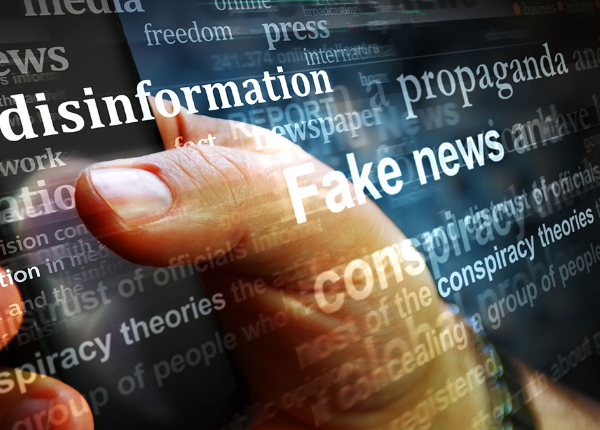Problems created by social media are not so new
Technology is evolving fast and is altering society in ways we never saw coming. But some problems social media pose today are actually not that new.
Regarding mass media, it has long been a story about who owns the ways to produce media, how to vet information, and how do we use information to reconstruct our society. These things are not new, social media just got introduced in that scheme. Jason Cain, assistant professor at the University of Mississippi, mentions some early forms of control of the mass media in 16th century France, when the Protestant movement was growing. In the late 1534, series of pamphlets were already circulating criticizing the Catholic Church, before being abolished under penalty of death by the King. The King Francis I therefore created a council at the University of Paris – Sorbonne to filter information: this is the first attempt at regulating communications.
This example from the past shows how history is repeating itself: what is happening today on social media is not new, there has always been censorship, political propaganda, and spreading of misinformation. However, each communication revolution brings more issues in controlling stories, the narrative gets more complicated, and misinformation gets harder to track.
“Is it a better world, where everybody gets to talk and maybe you get to the truth that way, or is it a better world when maybe everyone agrees on a slightly inaccurate version of the truth but society is all on the same page? I don’t have an answer for that,” Cain says.
Though we still had limited control over the means of producing information, what the digital area added to the picture is the ability to get a message out to a large population very quickly. On top of that, the democratization of the internet through the Web 2.0 allowed people to be pro-active. Cain believes that anytime there is a revolution it is easy to look at the negatives. But that does not necessarily mean that it is all negative, and social media is already here and is not ready to disappear. It happened because it is something people wanted to do, people wanted to share their lives with their friends, it is natural, it is human.
“We can use it for good, or we can use it for bad. Just like a screwdriver, you can stab someone to death with a screwdriver or you can build a home with a screwdriver. It’s a tool, it’s the user that does this. … In a world where there is going to be good and bad outcomes due to this technology, how do we maximize the good and downplay the bad,” Cain says.
Social media became a source of information
There were a few turning points in history when social media influenced newsrooms and reshaped the way we produce and consume news.
In 2009, Twitter was not nearly as popular as it is today, until the U.S. Airways Flight 1549 landed on the Hudson river on January 2009. Media crew were dispatched to report on the event but could not access the site. At that time, a journalist scrolling through Twitter lands on a tweet from Janis Krum who was on a ferry to go pick up the passengers of the place. Within 30 minutes, he was interviewed live on MSCBC. Jack Dorsey, co-founder and CEO of Twitter later commented that this “viral” tweet changed the future of the social media platform.
Another historical event shifted the relationship between newsrooms and social media: the Arab Spring of 2011. The foreign press was delegated to the sidelines and journalists were forced to use user-generated content (UGC) from Twitter in order to document the crisis. Nowadays, big news break first and bigger on social media, with social movements like #MeToo and #BLM. These platforms are competing with far fewer outlets, for newsroom are getting smaller due to the disruption by these platforms.
“For the first time in a long while people were really trusting social spaces and virtual spaces, and trusting them to be safer than the spaces in real life. That happened almost overnight and that was not where we things were headed,” says Cynthia Joyce, associate professor at the University of Mississippi.
What is the future of social media?
About 64% of Americans think social media have a negative effect on the way things are going in the U.S. today. When asking someone about their opinion about social media, the first reactions usually are anger, frustration and negative opinions. Why is that?
The problem is that these platforms, even though free, come at a cost. While platforms like Facebook do not necessarily sell your data, they do sell access to you to advertisers. Moreover, many elements can be reproached to these platforms: poor content moderation, massive user data breaches, platform used to influence elections and popular opinion, platform used to spread misinformation and disinformation, fake news, ads, filter bubbles, algorithms promoting fear and anger, and making profit off of users’ digital addiction.
After facing a lot of criticism, Facebook attempted to make some chances, but it is the user’s role to pressure for bigger changes in order to make the platform better. Modifying the algorithm and more transparency about that algorithm are changes made, as well as appointing a new oversight board for content moderation. Improvements that have already been in place include ads and links for COVID-19 information, as well as ads to get registered to vote.
As for Instagram, the biggest critique it faces is showing a world full of unrealistic standards triggering people losing in self-esteem and FOMO (Fear Of Missing Out) among other things.
“Children should not be on Instagram, and I will include a lot of teenagers in that. It just is bad for them. People should have a certain maturity level before they can get on there and decide who they are going to follow,” says Brad Conaway, visiting professor at the University of Mississippi.
There are not only negatives about social media. The new trending platform TikTok triggers creativity and entertainment, which if that is the future of social media, then we are in a good shape, thinks Conaway. Social media can be fun, it democratizes the spread of information, can carry powerful messages and lead to change, strengthens connections, triggers creativity, is a powerful marketing tool. Social media is not inherently bad, it is the user who determines and shapes its future and its impact. People need to use them responsively and show people how to do the same.
These thoughts were gathered during the conference “Is This the Real World? Finding Truth in the Age of Social Media” organized by the Ole Miss Alumni Association at the University of Mississippi.








